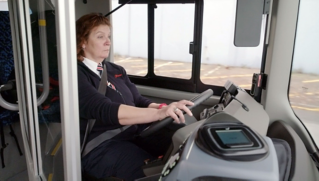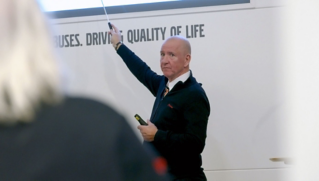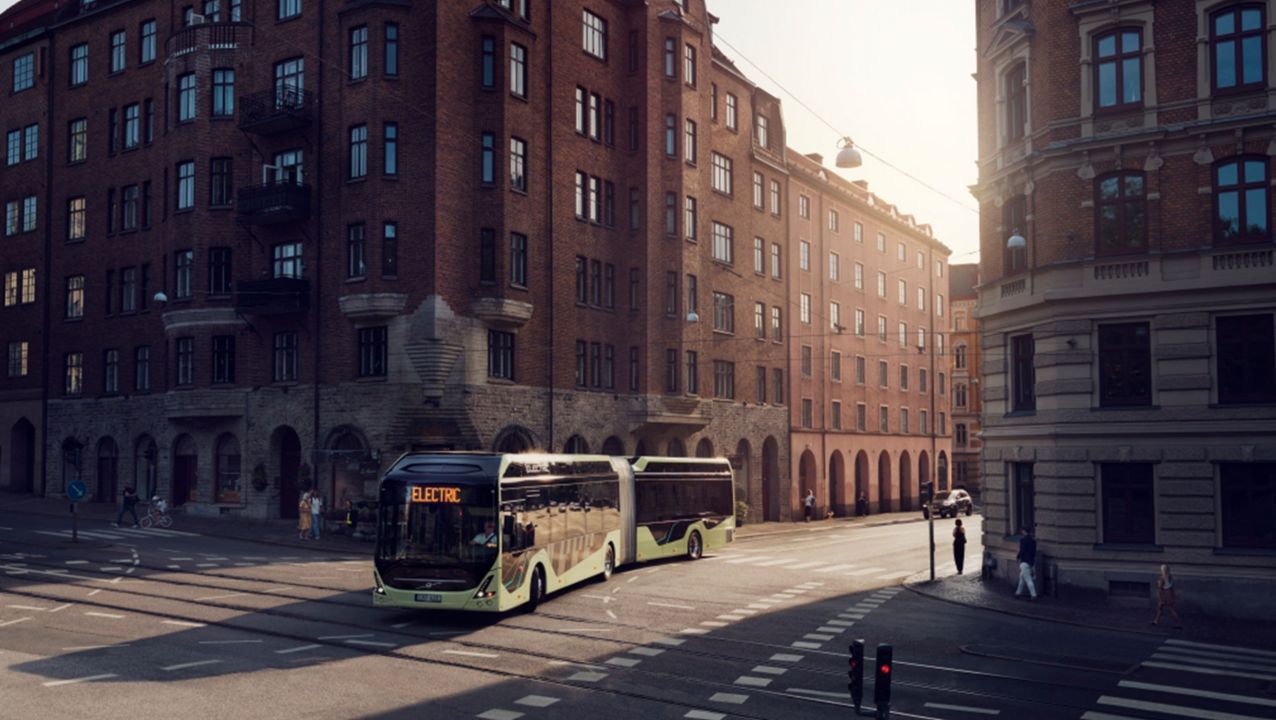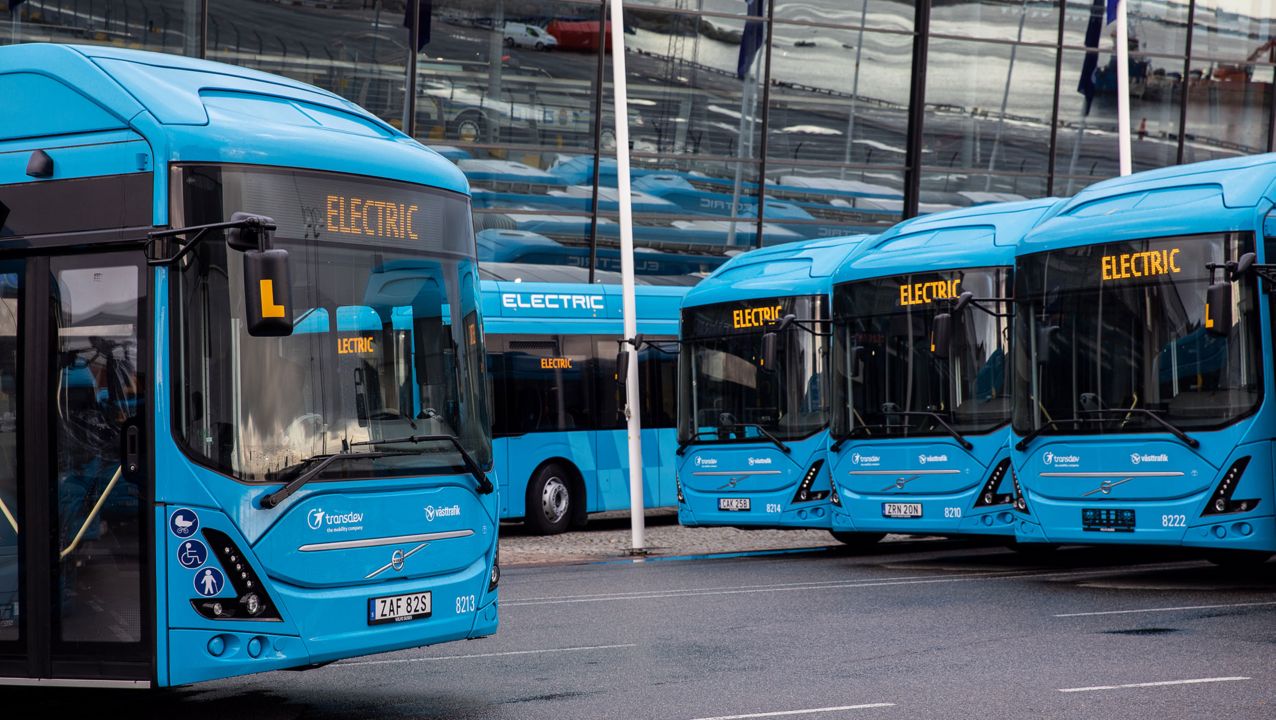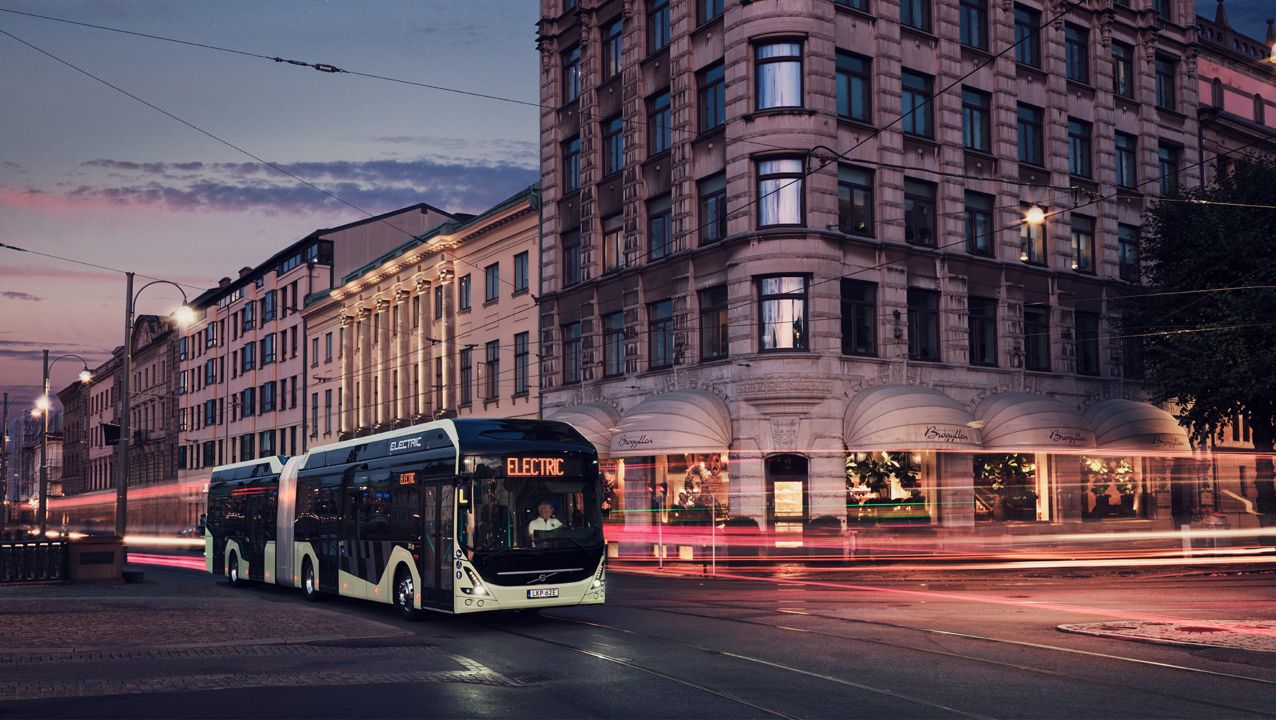On 13th December, 145 Volvo 7900 Electric Articulated buses will begin operating on the streets of Sweden’s second-biggest city. The new buses will be a big change to Transdev’s operations in the region – overnight, nearly half of its fleet will become electric.
“It’s very exciting and the drivers who have driven electric buses before are very positive. Thanks to the buses being so quiet and not having any vibrations, you do not get as tired after a working day,” says Ulf Lönnberg, Training Manager at Transdev.
Together with his colleagues, he will train a total of 750 drivers over five weeks. As part of the training, theory is mixed with practical elements such as charging on route and in the depot, as well as driving technique.
Our drivers are experienced and good at driving buses. The big difference as I see it is the charging, it is a completely new situation for most people.
“Our drivers are experienced and good at driving buses. The big difference as I see it is the charging, it is a completely new situation for most people,” says Ulf Lönnberg.
The buses, which operate on 34 different routes, will be charged at charging stations at end stops and via cable in the depots during the nights. To ensure an optimal charging infrastructure, Transdev has built 19 new charging stations around the city.
“To keep traffic flowing, all drivers need to know how it works. For the first month, we will have extra staff on-site both out on the routes and in the depots, who can help if needed,” says Ulf Lönnberg.
The driver training is held at the Volvo Buses Experience Center in Gothenburg. In addition to providing facilities, Volvo Buses is also responsible for training traffic instructors at Transdev.
A good driver can help keep costs down and reduce the environmental impact.
How a driver brakes and accelerates are two things that are important for energy consumption. By braking gently, the energy generated can be returned to the battery instead of disappearing as heat. Accelerating slowly requires less energy than accelerating fast. As a driver, it is therefore extra important to plan your driving carefully and adjust your speed before traffic lights and intersections.
“It’s important that everyone understands how the technology in an electric bus works and how driver behavior affects energy consumption. A good driver can help keep costs down and reduce the environmental impact,” says Trenda Johnson.
Pia Nilsson is one of the 750 drivers at Transdev who has completed the training. She has been a bus driver for 20 years and is experiencing electric buses for the first time.
“The training was very instructive. Driving and charging was easier than I thought it would be, and the bus is so much quieter and more comfortable than the buses I’m used to. I’m really looking forward to this – my colleagues and I will have a much better working environment,” she says.
Volvo 7900 Electric Articulated
- The Volvo 7900 Electric Articulated is 18,55 meters and can carry 150 passengers.
- The buses will be charged at fast-charging stations along the route, using the industry common charging interface OppChargeTM.
- At night, the buses will be charged via a CCS cable in the depot.
- The bus holds six lithium-ion batteries with a capacity of 396 kWh.
- The dual electric motor with two-speed transmission has a maximum power output of 2x200 kW, and maximum wheel torque at the driven axle of 31 kNm.

